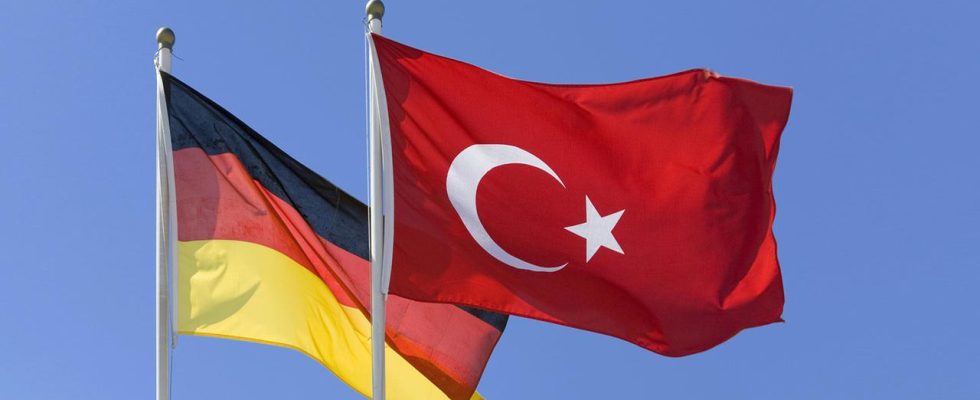German politicians are also looking forward to the vote in Turkey. There is talk of a fateful election, some politicians are hoping for a restart of German-Turkish relations without Erdogan.
Fateful choice – Gökay Sofuoglu, national chairman of the Turkish community in Germany, hears the word a lot these days. “It’s a neck-and-neck race. Many people here think that their vote will decide the outcome of the elections in Turkey.” Observers expect a tight result on Sunday. The voices of Turks abroad could therefore play an important role.
In 2018, the incumbent President Recep Tayyip Erdogan (AKP) received around 65 percent of the votes in Germany, significantly more than in Turkey. However, the majority of people of Turkish origin in Germany then and now do not take part in elections in Turkey.
Erdogan’s supporters
The CDU member of the Bundestag Serap Güler knows that Erdogan has a large following in Germany. Also because many German-Turks still do not feel recognized in this country. He gave young people in particular the feeling that they no longer have to hide because of their Turkish origins, says the German-Turkish woman who grew up in the Ruhr area.
Güler assesses the mood in Turkey very differently. Economic crisis, unemployment and a lack of freedom of expression – Turkish youth do not live as comfortably as young people of Turkish origin in Germany. “If Erdogan wins, we will have a very dissatisfied youth. That means there will be a huge movement of young people – either in uprisings or in the sense that they leave the country.”
“Houses of worship are not campaign headquarters”
So there is a lot at stake, believes Cem Özdemir. The Green politician and minister is all the more annoyed that Erdogan posters were temporarily put up in Nuremberg with the permission of the city administration. Public election campaigns by Turkish politicians are prohibited in Germany. Informal events take place in the mosques. “Houses of worship are not election campaign headquarters, neither for the AKP nor for the ultra-nationalist MHP,” Özdemir criticized in an interview with the ARD Capital Studio.
For Germany’s first federal minister of Turkish origin, one thing is certain: This election will decide Turkey’s future path. Namely, “whether the path leads in the direction of Europe, in the direction of democracy, the rule of law, human rights. Or whether Turkey joins a bloc with Russia and China.”
Hope rests on Kilicdaroglu
Neither Güler nor Özdemir can vote in Turkey themselves because they do not have a Turkish passport. They also do not make a public recommendation. In the conversation, however, it becomes clear that if Erdogan’s challenger Kemal Kilicdaroglu wins, they also hope for a new start in German-Turkish relations.
Departure for Europe, a restart of German-Turkish trade relations, visa simplifications for Turks who want to travel to Germany: Many new perspectives will open up for SPD member of parliament Macit Karaahmetoglu should Kilicdaroglu become the next president. A strong signal from Germany would be important immediately. “For example, that Olaf Scholz will travel to Turkey in the first 100 days to back the new government.”
However, the German-Turkish relationship is also threatening problems: Kilicdaroglu wants to negotiate with the Syrian dictator Bashar al-Assad in order to be able to send Syrian refugees back to their homeland.
For the green member of the Bundestag and chairman of the German-Turkish parliamentary group, Max Lucks, this is a red line. “Regardless of who is in power in Turkey, Germany will not go along with and will not support the normalization of Assad as one of the most brutal and cruel dictators in the world.”

